After LeBron dominated the Eastern Conference for the past eight years with little to no resistance, he is now headed west, leaving the competition for the spot in the finals completely open.
For Cleveland, the team LeBron just left, it is an opportunity for a new beginning. With the keys in the hands of recently drafted Colin Sexton, their aim is to rebuild and stay competitive.
A team like Detroit, on the other hand, is under a lot of pressure to win now. With Coach of the Year, Dwane Casey, they are expected to at least make the playoffs this time.
Indiana exceeded expectations last year but created bigger ones for this year. The amazing improvement of Victor Oladipo sets the Pacers' bar for this upcoming season much higher.
Milwaukee didn’t quite live up to their expectations, but with a young crew who is continuously improving and a potential superstar in Giannis Antetokounmpo, they need to achieve some postseason success.
For Chicago, steadily improving their young bunch is the goal. After Lauri Markkanen made the All-Rookie First Team, there are high hopes for rookie Wendell Carter Jr. to show the same level of potential.
These Central Division teams made some moves in the offseason in order to achieve the goals mentioned above. But here are the worst contract each team inked this following summer.
#1 Cleveland Cavaliers - Kevin Love
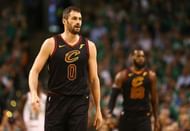
Signing Love to a four-year/$120M extension, starting in 2019, gives Cleveland the talent they need to stay competitive and an option to trade him in the future for some value.
However, there are some problems with this deal.
First, this signing shows the Cavs' hope of Love to return to his Minnesota form. In his last season with the T-Wolves, Love averaged 26.1 points and 12.5 rebounds per game, while shooting over 37 percent from three.
The problem is Kevin Love didn’t come much near that in his four years as a Cavalier. Counting on him magically returning to his old self four years later is ill-advised.
Second, in the past four years Love suffered five back injuries and three knee injuries. Although these injuries are a lot to handle for any player, for a 6-10, 250 pounds big-man, who will turn 30 this September, the erosion is much bigger.
Love did show sparks of the player he used to be last season, but paying him near-max dollars, hoping he will return to form and stay fit, is a huge gamble.
#2 Indiana Pacers - Doug McDermott
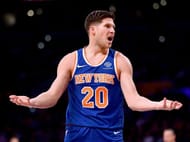
The Pacers lost both Lance Stephenson and Glenn Robinson III to free agency, meaning they had to add wing depth this offseason.
On paper, adding a guy like McDermott, a reliable three-point shooting small forward, seems like a good deal. But when you compare the money he will be paid to his actual value, it might not be the case.
After slowly earning a spot in the Bulls' rotation in his first two years in the league, McDermott started bouncing around the league.
He started the 2016-17 season with Chicago, was traded at the trade deadline to Oklahoma City, moved during the summer to the Knicks and landed in Dallas in early February this year. Indiana will be his fifth team in three seasons, not a record to be proud of.
During that time, his numbers stopped showing the gradual improvement they did in the beginning of his career in Chicago. A three-year/$22M fully guaranteed contract seems a little bit too much for a player whose production level is mediocre.
#3 Milwaukee Bucks - Ersan Ilyasova
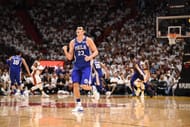
Since Milwaukee traded him in the summer of 2015, Ersan Ilyasova went through a lot in the NBA. In the past three years, Ilyasova played for Detroit, Orlando, Oklahoma City, Philadelphia, Atlanta and Philadelphia again.
After playing 225 games for five different teams in that span, he will return to the team for which he started his NBA career and played twice as many games.
Even though he ended the season as a solid backup forward for the Sixers, it's worthy to note he only joined them for a minimum salary, after getting a buyout from the Hawks. Hard to believe Philly would have offered him much more.
Ilyasova fills a hole in the Bucks' roster, created by the decision to let Jabari Parker go. He adds the bench shooting they missed last year.
But a three-year/$21M contract, $14M guaranteed, for a 31-year-old who's playing for his sixth team in four years is excessive and will hurt them in next year's free agent market.
#4 Detroit Pistons - Glenn Robinson III
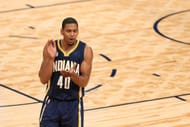
In a desperate move to make the playoffs, Stan Van Gundy went all-in in January to get Blake Griffin. The move failed and after missing the postseason in three of the last four years, SVG was released from his duties as head coach and president.
The new, partially constructed, front office started working on adding depth to the roster. They didn’t have cap space to maneuver with and had to work mainly with salary exceptions.
They signed Glenn Robinson to a two-year/$8.3M deal using the Mid-Level exception, with a team option in the second year.
Robinson suffered a high ankle sprain less than three weeks before the start of last season, causing him to miss 58 games.
He didn’t play a lot since he returned and had a drop in production as well. Even though four million dollars per year are not too much in modern NBA terms, it is the most Detroit will be able to offer this summer. Giving it to a player whose health is questionable is a possible waste.
#5 Chicago Bulls - Zach LaVine
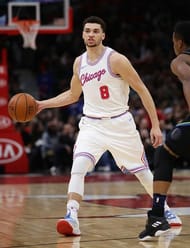
Zach LaVine was originally a part of the trade that sent Jimmy Butler to Minnesota. He missed the first half of the season due to a torn ACL in his left knee and went down again two months later because of tendonitis in the same knee.
In the 24 games he managed to play, LaVine put up a decent 16.7 points-per-game, playing 27.3 minutes a night. He saw a drop in shooting percentages from almost every spot on the floor, an indication his knee problems hurt his shooting form.
Fortunately, for LaVine, the Sacramento Kings were looking for a backcourt upgrade and had money to spare. He signed a four-year/$78M offer sheet with the Kings, running the Bulls into a cul de sac; they wanted to keep LaVine but had to commit to a very expensive, long-term deal.
Chicago got to keep their potential starting shooting guard, but him staying healthy will be crucial for this deal to be worth it.
Do you agree with our list? Sound off your opinions in the comments section below!
